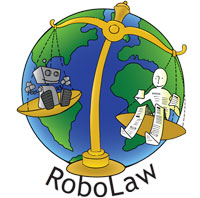| Nov 26, 2013 | |
Laws for robotics |
|
| (Nanowerk News) What laws and regulations are needed concerning robotic technology and similar systems? An EU project is finding out. | |
 Following the first computers, the idea of thinking machines became a staple of science fiction. Even very early on it was understood that such machines would need some governing framework. The subject of robotics law was seriously considered by European legal scholars through the 1980s. However, most of the studies related to agent technology in software systems and, although investigations addressed important legal themes to be covered by future robotics laws, the field was still more science fiction than actuality. The first investigation to address these issues is the EU-funded project, 'Regulating emerging robotic technologies in Europe: Robotics facing law and ethics' (ROBOLAW). The project's main aims include identifying the legal and ethical implications of emerging robotic technologies, in terms of whether existing frameworks are adequate given the state of the technologies. Secondly, the research is taking into account how developments in robotics affect European social values. Apart from robotics as conventionally understood, ROBOLAW also considers the legal status of pioneering technologies such as nanotechnologies, neuroprostheses and brain–computer interfaces. The study employs multidisciplinary methods and comparative analyses, and will highlight areas of European regulation needing reform. ROBOLAW's main result to date is a workshop where invited speakers addressed these issues. The outcome of these discussions was published in 2013 as an extensive reference, which also includes a research methodology. That anthology is the first in a planned ROBOLAW Series, which will run for the project's duration. |
|
| The project also developed a structure of applicable technologies depending on level of autonomy, task performed, relationship to humans and other criteria. This taxonomy, and associated case study analysis, will help focus the legal questions, especially in terms of rights. A report published by ROBOLAW examines how robotic technologies affect European rights. A discussion journal article focused on industrial robotics, assistive technology and biomedical robotics. The broad issues of these publications, and the project's other workshops, focused on how the technologies affect our conception of humanity, and how they may be designed to safeguard 'human values'. | |
| The project's outcomes should also be applicable to a wide range of other technologies. ROBOLAW should protect rights affected by new technologies. |
| Source: Cordis |
